Want to add an autopsy that wont kill your story? Death swings its scythe in every genre, from family funerals to crime scenes to creatures that wont stay buried. This user-friendly, illustrated reference digs into all things posthumous and postmortem.
Presented as a research manual for the experienced writer, this Forensics for Fiction title offers practical approaches and realistic details by covering:
Terms and techniques used during autopsy procedures.
Different postmortem professionals and their specialties.
The stages of decomposition in different environments.
Methods used to estimate the time of death.
Case studies in which autopsies cracked the crime.
Examples of how to use autopsies in any popular genre.
Whether youre writing about dissection or resurrection, this guidebook covers it all from cadaver to slab as an easy-to-understand resource for dead-on storytelling.
Praise for Geoff Symon
Written with the perfect blend of information, sensitivity, and humor, Geoff Symons Autopsies is a must-have research tool for any writer or anyone who simply wants the real story on what happens in the morgue. Real-life examples, illustrations, and dos/donts make this the most accessible, approachable research text Ive encountered in my twenty years of writing crime fiction.
Karen Rose, New York Times, USA TODAY, Londons Sunday Times, Germanys der Spiegel, and the Irish Times bestselling author
Whether its crime scenes, sensational cases, or the ins and outs of autopsiesGeoff Symon is my go to guy. He makes learning about forensics both fascinating and fun. Everything he writes is an autobuy for me.
Dee Davis, award winning, bestselling author
Autopsies
Forensics for Fiction Series
by Geoff Symon
Autopsies (Forensics for Fiction series) by Geoff Symon.
Copyright 2017 Evil Mastermind, LLC. Manufactured in the United States of America. All rights reserved. No part of this publication may be reproduced, distributed or transmitted in any form or by any electronic or mechanical means including information storage and retrieval systems without permission in writing from the publisher, except by a reviewer, who may quote brief passages in a review.
Published by Evil Mastermind, LLC
New York, NY
EvilMastermind.com
First Publication: 1 December 2017
Edited by Tere Michaels
Illustrations by Evil Mastermind, LLC
Book formatting by BB eBooks
ISBN 978-1-945043-14-7 (Ebook)
ISBN 978-1-945043-15-4 (Print)
Website: www.ForensicsForFiction.com
 Copyright 2017 by Evil Mastermind, LLC, All Rights Reserved
Copyright 2017 by Evil Mastermind, LLC, All Rights Reserved
To those who see death as an inspiration,
a story unearthed.
Acknowledgements
To everyone who contributed and made this book a reality, I thank you. Specifically to Karen Rose, Lyla Bellatas, and Rayna Vause, whose time is precious and yet they spent it on me.
To Pamela Burford, who in the midst of making her life crazy, ironed the wrinkles out of mine, I thank you. Your sharp eye has been a draft-saver again and again.
A trumpet of praise rings out to Tere Michaels, who provided constant support along with her precise revisions. Anyone who can breathe life into a book about death is a master of her craft. Thank you.
And, of course, to my partner in crime, who finds the heartbeat in the projects Im ready to pronounce dead.
Preface
When I taught forensics studies at the George Washington University in Washington, DC, and Marymount University in Maryland, I was amazed at my dedicated and enthusiastic students. As an adjunct professor, I first fully grasped how much interest exists for a career field to which Ive dedicated twenty years.
I live with a successful author. Three years ago various writing groups and conventions began inviting me to present forensic courses at their gatherings. Authors turned out to be even hungrier for realism than Id expected. They might deal in make-believe, but they wanted their stories anchored in truth.
All the different writer audiences made one thing clear: few reference books hit the sweet spot between minutiae and fluff. While many books exist on crimes and investigative techniques, very few address the unique challenges of writing genre fiction.
That need gave birth to the Forensics for Fiction Series. In these books, Im distilling all of my training and experience as a twenty-year forensic investigator and my personal involvement with the genre community. Each book will provide a targeted overview of a different aspect of criminal investigations. Ill present each topic as a heaping platter of research goodies for writers of every genre to choose from, depending on what works for the story in front of them.
I want this book to be accessible and helpful, so rather than bury you under a wall of impenetrable text, Ive broken up each chapter with insets:
PROCEDURES and TERMS: highlighting how real-life law enforcement officials operate and actual language they use.
ACCURACY and PITFALLS: providing practical tips to steer authors away from common errors.
FUN FACTS: sharing entertaining tidbits to spark an idea or inspire a plot bunny.
ALERTS: identifying specialized sections that may only interest exhaustive researchers. Whenever you see the Alert symbol

I am letting you know that the following section may be more technical than your book requires. If you dont need to know the physics and math involved, feel free to skip these marked sections. You can pick up at the next section seamlessly.
I make sure to provide plenty of illustrations to clarify and drive home every concept. Additionally, I include true-crime case studies relevant to the topic and talk about my own investigations.
I hope you find this book informative and entertaining, but mostly hope you find it useful in your next great story.
Chapter 1: Introduction
Hic locus est ubi mors gaudet succurrere vitae.
(This is the place where death delights in helping the living.)
Giovanni Battista Morgagni
We find the above Latin proverb on plaques in morgues across the globe. It serves as a reminder why the dissection of a human being is not merely a morbid task, but a valuable, often critical, step in discovering disease and identifying genetic disorders for surviving family members, as well as providing evidentiary contributions to criminal investigations. What many people see as macabre is actually an honorable and beneficial service.
Popular fiction is chock-full of post-death thrills. Agatha Christie uses the evidence found through the evaluation of bodies in many of her cozy mysteries, such as in Murder on the Orient Express. Patricia Cornwell uses autopsies to involve her protagonist, Dr. Kay Scarpetta, a medical examiner, in her series of crime thrillers. And lets not forget our classic paranormal stories rich in undead specialties. Vampires, such as Bram Stokers Dracula, are forever kept in the freshest stages of decomposition, while zombies (moist) and mummies (dry) exhibit opposite spectrums of extreme decay. While in Mary Shelleys tale, Dr. Frankenstein had to examine the compatibility of body parts as he exhumed corpse after corpse to build his monster.
Autopsies: Forensics for Fiction

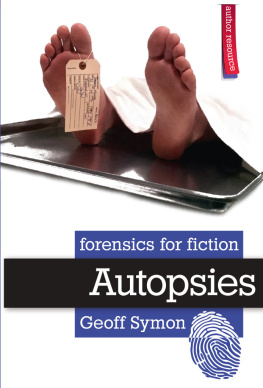
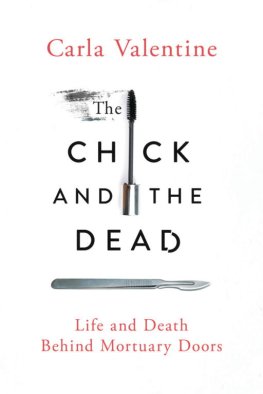

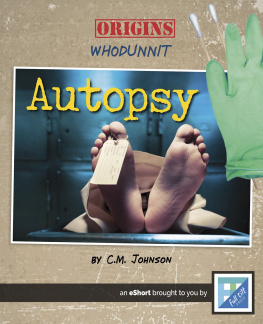

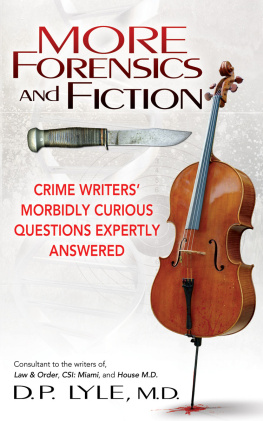
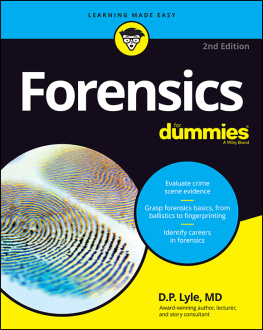
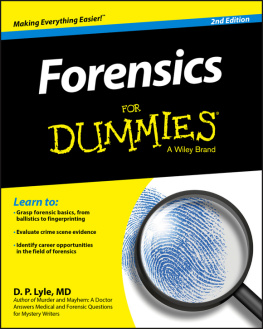
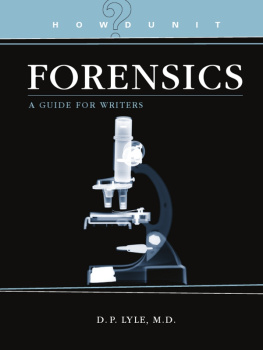
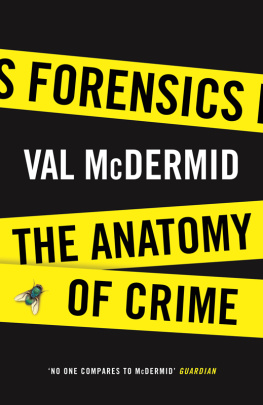
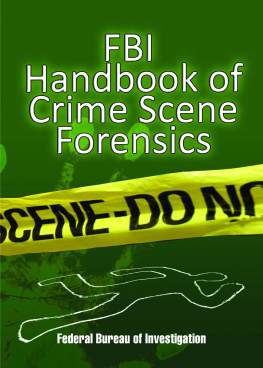

 Copyright 2017 by Evil Mastermind, LLC, All Rights Reserved
Copyright 2017 by Evil Mastermind, LLC, All Rights Reserved